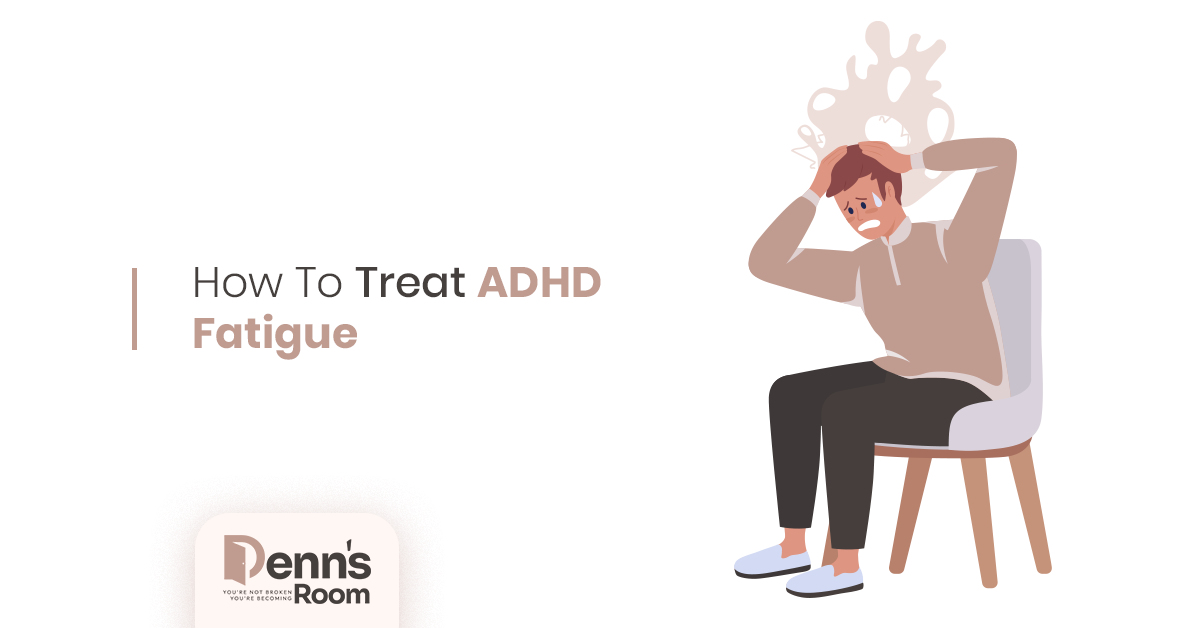Feeling drained all the time, mentally foggy, and emotionally on edge?
People who have ADHD experience fatigue that extends past normal tiredness.
ADHD-related fatigue exists as a constant, genuine experience that affects people’s lives without others truly grasping its impact.
This guide will walk you through how to treat ADHD fatigue,why it happens, and what you can do to find relief and get your energy back.
ADHD and Mental Fatigue
The ADHD condition extends past difficulties with focus and attention.
One of the most overlooked aspects is ADHD and mental fatigue. This kind of fatigue can show up as:
- Trouble concentrating even when well-rested
- Emotional outbursts or sensitivity
- Feeling mentally “foggy” after only short periods of activity
- Needing frequent breaks throughout the day
Why Does ADHD Make You Tired?
So, why does ADHD make you tired?
The brain process of someone with ADHD requires extreme effort to maintain focus while changing attention and filtering distractions.
Here are a few reasons behind the fatigue:
- Cognitive overload: Constant effort to stay focused and organized
- Emotional dysregulation: Managing mood swings can be draining
- Sleep challenges: ADHD often affects circadian rhythms
- Overstimulation: Noisy, chaotic environments tire out the ADHD brain quickly
These all contribute to that “I’m so done” feeling by midday. It’s also why many describe ADHD and being always tired as their baseline.
How to Treat ADHD Fatigue
1. Build Restorative Routines
Structure is essential. When your brain is juggling multiple thoughts, a predictable daily rhythm can be helpful.
Try this:
- Morning and night routines: Help signal your brain when it’s time to focus or wind down
- Time-blocking: Break your day into dedicated focus and rest blocks
- Visual planners or apps: Reduce cognitive load and decision fatigue
- Pomodoro technique: Focus for 25 minutes, then rest for 5—repeat
This reduces ADHD mental exhaustion by cutting down mental chaos.
2. Fuel Your Body and Brain
Your energy is closely linked to your physical health. If you’re feeling ADHD and always tired, food and lifestyle changes can help.
- Eat nutrient-rich meals every 3–4 hours to prevent crashes
- Limit sugar and processed carbs, which can spike and crash energy
- Add healthy fats like avocados, nuts, and salmon for brain fuel
- Stay hydrated—even mild dehydration worsens fatigue and fog
- Move your body daily, even gently—yoga, stretching, or walking count
These small habits create stability and help address why does ADHD make you tired all the time.
3. Address Sleep Issues
Sleep problems are incredibly common in ADHD. Many struggle to fall asleep, stay asleep, or feel rested after sleeping.
Tips to improve sleep:
- Avoid screens an hour before bed
- Use white noise or calming music
- Set a consistent bedtime, even on weekends
- Try weighted blankets for grounding and comfort
- Discuss melatonin or sleep aids with a healthcare provider
Poor sleep contributes to both ADHD and mental fatigue and emotional dysregulation. Tackling it is a big step forward.
4. Set Emotional Boundaries to Avoid Burnout
Emotional burnout is about being too overwhelmed for too long.
If you’re constantly saying yes or pushing through, it leads to ADHD and burnout quickly.
What helps:
- Learn to say no (even to yourself)
- Take regular “reset breaks” during the day
- Reduce screen time when overstimulated
- Unfollow draining social media accounts
- Reframe guilt—rest is not laziness
Learning how to heal ADHD burnout means giving yourself permission to do less—and doing so intentionally.
5. Get Professional Help When You Need It
Therapists, ADHD coaches, and even support groups can help you untangle the emotional exhaustion and build strategies that work for your brain.
Medication may also help stabilize attention and reduce fatigue.
If your ADHD and mental fatigue feel unmanageable, reaching out is not a weakness—it’s a smart, self-supportive move.
Signs of ADHD Burnout
Understanding the signs of ADHD burnout can help prevent a full crash. Look for:
- Constant low energy despite rest
- Disinterest in things that usually bring joy
- A sense of hopelessness or overwhelm
- Overuse of coping behaviors like binge-watching or scrolling
Burnout isn’t weakness. It’s your body asking for rest and care.
Next Steps
You don’t have to power through exhaustion. Instead, slow down and listen to what your mind and body need.
Here’s what to try next:
- Make one small change to your daily routine this week
- Reach out to a support group or mental health professional
- Track your energy levels for patterns
- Start journaling moments of rest and what helps you recharge
And most importantly, believe that healing is possible.
Final Take
How to treat ADHD fatigue isn’t just about doing more—it’s about doing things differently.
ADHD-related exhaustion is real, but with understanding, support, and small shifts, you can get your energy back.
Need Extra Support?
Denn’s Room Psychiatry is here for you. Our psychiatric team can offer support for ADHD fatigue, burnout, and emotional wellness.
If you’re feeling stuck, overwhelmed, or just want someone to listen—Denn’s Room Psychiatry can help you.
Click here to connect with a mental health professional today.
FAQs
What is ADHD extreme fatigue?
ADHD extreme fatigue is a deep, persistent tiredness caused by constant mental effort, emotional stress, and overstimulation.
How long does ADHD burnout recovery take?
Recovery varies. Some feel better in weeks with rest and support, while others need months. Consistent care and boundaries help speed up healing.



No comment